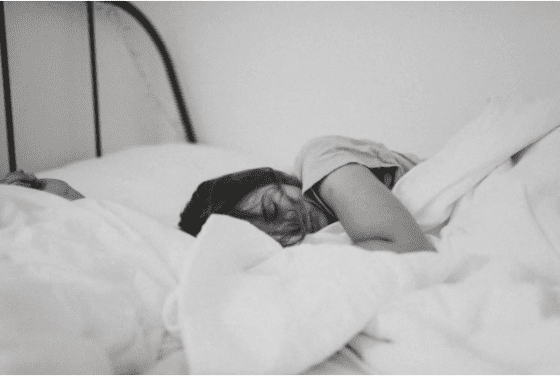
Do you get enough rest at night? Do you have trouble falling or staying asleep? According to the National Institutes of Health (NIH), approximately one-third of American adults do not get enough sleep. And stress can exacerbate the situation.
Another NIH research says that adults require 7-8 hours of sleep per night to maintain good mental and physical health, improve quality of life, and avoid an increased risk of injury.
Here are Top 8 tips to sleep better at night:
Mind Your Circadian Rhythm
Going to bed and getting up simultaneously every day, even on weekends, can help you sleep better. Keeping a sleep schedule allows your body to maintain a consistent sleep-wake cycle. Over time, this will assist you in falling asleep quickly and remaining asleep throughout the night. Another thing you can do to improve your sleep patterns is to get enough sunlight as soon as you get out of bed in the morning. Go outside without sunglasses for 5 to 30 minutes to tell your brain to wake up. Early morning sun exposure also boosts melatonin production.
Exercise Improves Sleep Quality
Exercise regularly can help to improve the quality and duration of your sleep. On the other hand, exercising right before bedtime can have a stimulant effect on the body and should be avoided. Try to complete your workout at least three hours before you plan to retire for the night.
Eliminate Alcohol and Stimulants Like Nicotine and Caffeine
Caffeine’s effects can last for several hours, possibly up to 24 hours, so the possibility of it interfering with sleep is significant. Caffeine may not only make it difficult to fall asleep, but it may also cause frequent awakenings. Likewise, alcohol may be sedative for the first few hours after consumption, but it can cause frequent arousals and a restless night’s sleep. If you are taking any medications that act as stimulants, such as decongestants or asthma inhalers, consult your doctor about the best time to take them to help minimize any effect on your sleep.
Increase Bright Light Exposure During The Day
The circadian rhythm is your body’s natural time-keeping clock. It affects your brain, body, and hormones, allowing you to stay awake and tell your body when to sleep. During the day, natural sunlight or bright light aids in the maintenance of a healthy circadian rhythm. This boosts both daytime energy and nighttime sleep quality and duration. It also cut the time it took to fall asleep by 83%. (Source)
Back Off of Blue Light
Blue light, emitted by smartphones, e-readers, tablets, computer screens, TVs, and digital clocks, is a short frequency of light that may harm the eyes and disrupt sleep. To get a good night’s sleep, limit screen time for several hours before bedtime. Wearing glasses with an orange tint that block out blue light may also be beneficial. There are apps available for your computer, tablet, and smartphone that prevent blue light from being emitted by the screens. Aside from avoiding blue light exposure, it’s a good idea to turn off your devices several hours before bedtime to increase your chances of getting a good night’s sleep. Cover up any displays visible from your bed, such as a digital clock.
Get a Comfortable Bed, Mattress, and Pillow.
Some people are perplexed as to why they always sleep better in a hotel. Aside from the relaxing environment, bed quality can also have an impact on sleep. One study looked at the benefits of a new mattress for 28 days and discovered that it reduced back pain by 57%, shoulder pain by 60%, and back stiffness by 59%. It also increased sleep quality by 60%. (Source)
Furthermore, poor-quality bedding can aggravate lower back pain. The best mattress and bedding are incredibly personal preferences. If you’re upgrading your bedding, go with your gut instinct. It is recommended that you replace your bedding every 5–8 years.
Use the Bed Only for Sleep and Sex
If you’re having trouble sleeping, get up and do some light housework or another activity until you’re tired. For example, do the dishes or clean out a closet or drawer. Your bedroom should only be used for sleeping and sex. You may be too stimulated to sleep if you work, read, watch TV, or use the computer in bed. Keep the television and computer away from the bedroom. You want your body and mind to associate sleep and relaxation with the bedroom. Another helpful tip is to keep the room cool to improve sleep quality.
See Your Doctor for Chronic Sleep Problems
Everyone experiences occasional sleeplessness, but chronic sleep problems may indicate a more serious underlying problem. Certain medical conditions or medications like zopiclone can disrupt sleep. Sleep deprivation can lead to difficulty concentrating, memory problems, and an increased risk of accidents. Consult your doctor about your sleep issue. Tell the truth about any challenges you’re having falling or staying asleep. Inform your doctor if you wake up feeling tired or sleepy or if you fall asleep during the day. Keep a symptom diary so that you and your doctor can spot any patterns contributing to your condition. Doctors may prescribe Zopiclone for sleep disorder symptoms. You can buy zopiclone online from Fastukmeds.
The bottom line
Sleep is vital to your health. According to a large study, inadequate sleep was linked to an increased risk of obesity by 89 percent in children and 55 percent in adults. (Source)
Other research has found that sleeping for less than 7–8 hours per night increases your risk of developing heart disease and type 2 diabetes. To achieve optimal health and well-being, make sleep a top priority and implement some suggestions above.


